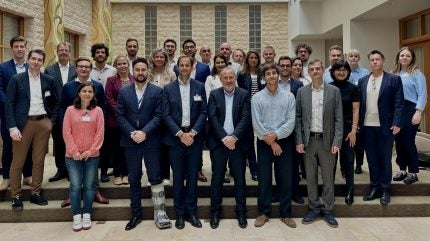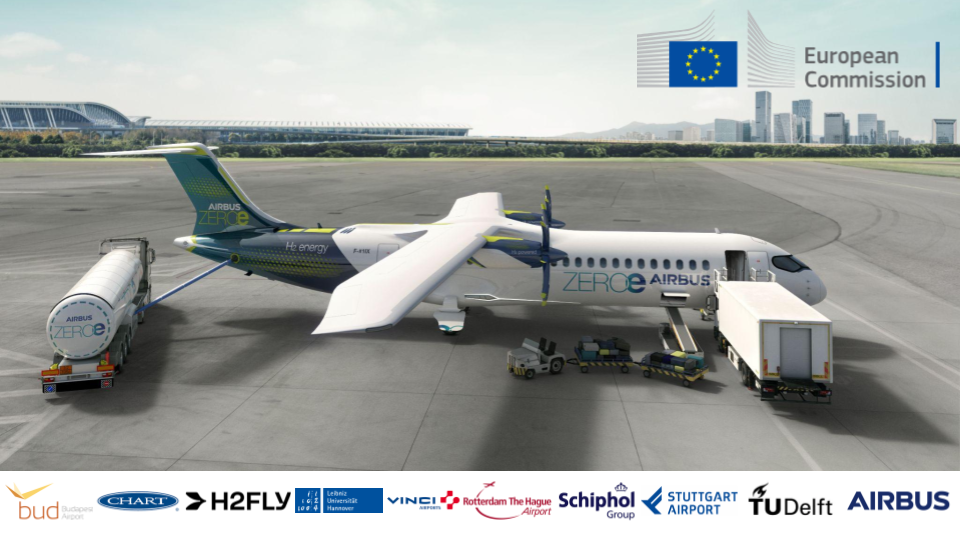
An Airbus-led consortium of academia and industry has been awarded €10.8m ($11.7m) from the European Union’s Horizon Europe Framework Programme to develop and demonstrate safe handling of hydrogen for airport operations.
The GOLIAT (Ground Operations of Liquid hydrogen Aircraft) project will bring research and modelling from universities across Europe to aircraft and airport operators over the course of the four-year programme.

Discover B2B Marketing That Performs
Combine business intelligence and editorial excellence to reach engaged professionals across 36 leading media platforms.
Decarbonisation of transport is one of the EU’s key policy aims, and hydrogen has been identified as an efficient method to pursue.
The project partners say they plan to show safe ground handling and refuelling practices for “high-flow liquid hydrogen”, known as LH2.
While this project is only looking at small planes, any solution will be required to show scalability for mass usage.
The GOLIAT consortium consists of 10 partners from eight countries: Airbus (France, Germany, UK), Chart Industries (Czech Republic, Italy), TU Delft (Netherlands), Leibniz University Hannover (Germany), Royal Schiphol Group (Netherlands), Rotterdam The Hague Airport (Netherlands), Vinci Airports (France, Portugal), Stuttgart Airport (Germany), H2FLY (Germany), and Budapest Airport (Hungary).

US Tariffs are shifting - will you react or anticipate?
Don’t let policy changes catch you off guard. Stay proactive with real-time data and expert analysis.
By GlobalDataKarine Guenan, vice president of ZEROe Ecosystem at Airbus and leader of the project, said the fuel will be most important for the short haul aviation market.
“We continue to believe that hydrogen will be an important fuel for the future of short-haul aviation. We welcome the opportunity to help build the operating case for the widespread daily use of liquid hydrogen at airports,” she explained.

Wilma van Dijk, CEO of Rotterdam The Hague Airport said smaller regional airports were at the forefront of hydrogen-powered aviation, putting them at the centre of this research.
“There are many challenges that need to be addressed on multiple fronts in order to fully realize the potential of hydrogen aviation, including refuelling of hydrogen aircraft. As a regional airport, we’re at the forefront of hydrogen aviation initiatives, with multiple projects underway in collaboration with various partners in our region,” she said.
“With over 158 years of experience in hydrogen technology, process and equipment, we are excited to share our expertise to further progress the liquid hydrogen application in mobility and transport as well as the associated infrastructure,” added Jill Evanko, CEO of Chart.



